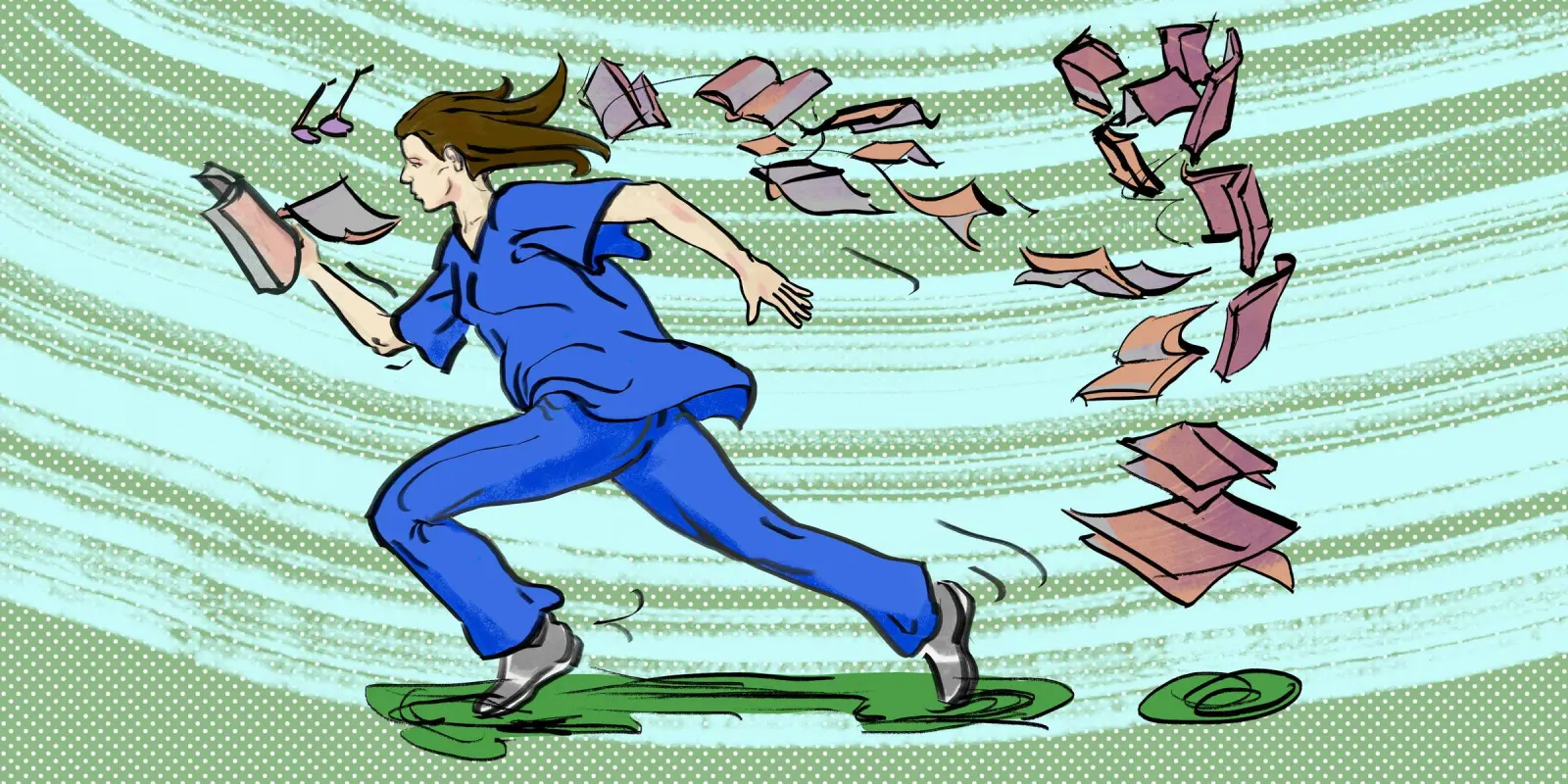“Residency is a marathon.”
“Residency is a marathon, and you’re running it at a full sprint.”
“Residency is a marathon, you’re running it at a full sprint, and people are throwing rocks at you.”
Medical training is awash in long-distance running metaphors, and for good reason. A marathon is a test of endurance, where the conditions are sometimes unpredictable and the finish line seems unfathomably far. Just as distance runners experience various forms of pain throughout their race, residents also encounter physical and psychological pain during their training. Pain permeates both residency and distance running, and a deeper look illustrates how the experience of pain is more multifaceted than may seem at first glance. As both a runner and resident, I’ve experienced different types of pain, and I’ve seen how, depending on context, its effects can range from detrimental to transformative.
I was 12 miles into an 18.6-mile trail race on Mt. Tamalpais in California, and I was ready to stop running. The first 2 miles of the race consisted of a 2,000-foot elevation gain, and 10 miles later, my legs were both feeling like lead and on fire. I had made the descent into a redwood grove. I wasn’t sure if I could make it back out of the grove, and the allure of surrendering to the comfort of an early exit beckoned. In a moment of weakness, I grabbed my cell phone, intent on summoning the race’s rescue team. It was then that I realized that I had no service. In that moment of isolation, stripped of the possibility of external aid, I was confronted with the truth: The only path forward lay in perseverance.
Similarly, in the crucible of residency, there are moments of overwhelming exhaustion and self-doubt. Particularly in the early stages of training, when one is feeling tired and uncertain, the tide of responsibility makes it all too tempting to surrender, to relinquish control, to call for rescue. Yet just as on the trail, it is these moments of pain and uncertainty that serve as catalysts for personal growth. Faced with the weight of decision-making and responsibility for patients’ well-being, one has the opportunity to rise to the occasion and discover previously untapped reservoirs of strength. These encounters with adversity become opportunities for resilience to flourish and for painful moments to help forge character growth.
As I crossed the finish line, I realized that my biggest limiting factor during that race was myself — not my physical ability, but rather my lack of confidence. Residency is full of moments like this: painful moments of self-doubt followed by perseverance, and finally, the triumph of overcoming a challenge one had believed to be insurmountable.
The flipside of beneficial pain, however, is detrimental pain. In my experience as a runner, this has manifested most saliently as repetitive ankle strains. I can’t recall the first time I sprained my ankle, but I do know that a combination of internal pressures and external expectations from coaches and teammates made me start running on it far too early after injury. I’ve sprained my ankle too many times to count, and combined with inadequate healing and rehabilitation time, it has morphed into chronic ankle instability. I still love to run, but I run with the knowledge that the effects of these injuries will stay with me indefinitely.
This has unfortunate parallels to moral injury sustained during medical training. Long work hours, demanding patient loads, and ethical dilemmas all have potential to create emotional wounds that, if left untreated, can deepen over time. Unresolved moral injuries can have enduring effects on the well-being and professional identity of residents. Left unaddressed, these can lead to chronic emotional wounds: burnout, compassion fatigue, and loss of empathy.
As a runner, I’ve pushed myself to overcome challenges that I thought were impossible. The sense of overcoming challenges and accomplishment is what keeps me going, but this has not been without a price — bodily wear and tear, repetitive injuries with inadequate healing time, and chronic ankle weakness. As a new class of interns gears up to start residency this summer, I’d like to offer this advice: You’re going to experience pain in residency. Some pain will be a catalyst for growth, and other pain will only serve to harm you. Recognize the difference, embrace the former, and allow yourself to heal from the latter. You will finish residency with many wounds and scars, but you will also accomplish something big and hopefully worthwhile. I will leave you with a quote from Haruki Murakami, one that sticks with me when the finish lines of both the race and residency seem particularly distant and impossible to reach: “I have only a few reasons to keep on running, and a truckload of them to quit. All I can do is keep those few reasons nicely polished.”
Have you encountered moments during residency that have helped you grow? Share your experiences below.
Hailey Roumimper is an internal medicine resident in Washington, DC. She is a 2023–2024 Doximity Op-Med Fellow.
Illustration by Jennifer Bogartz





